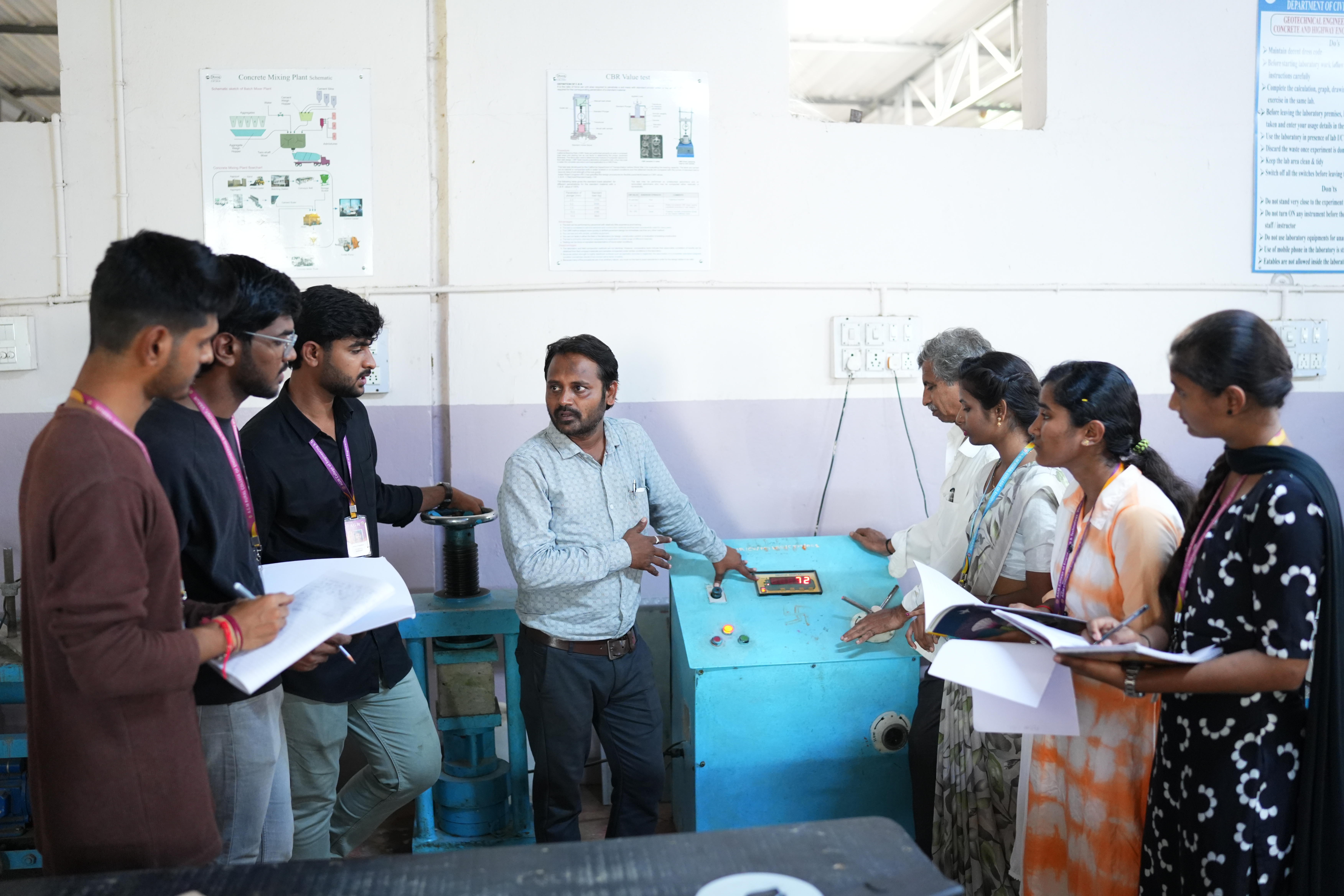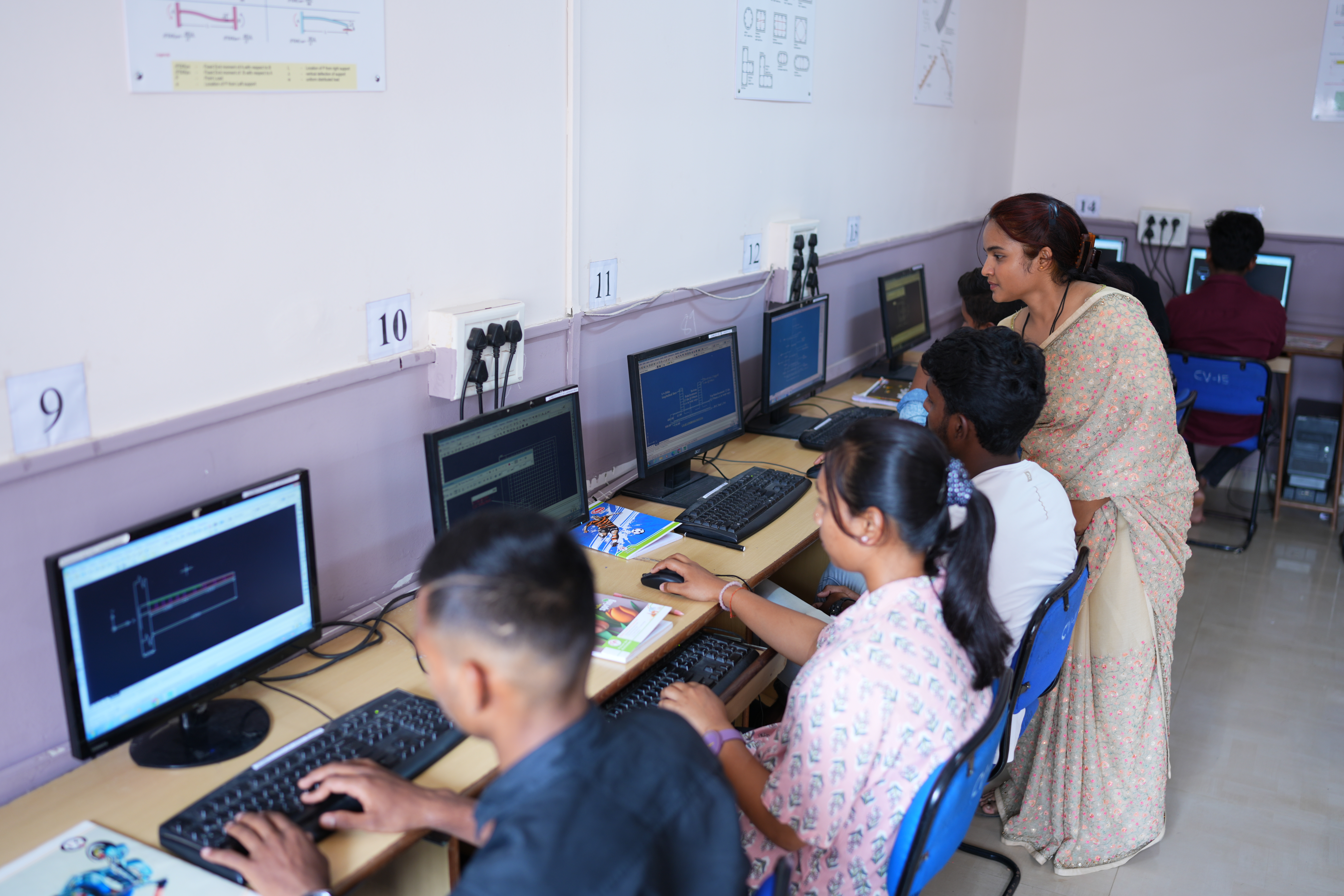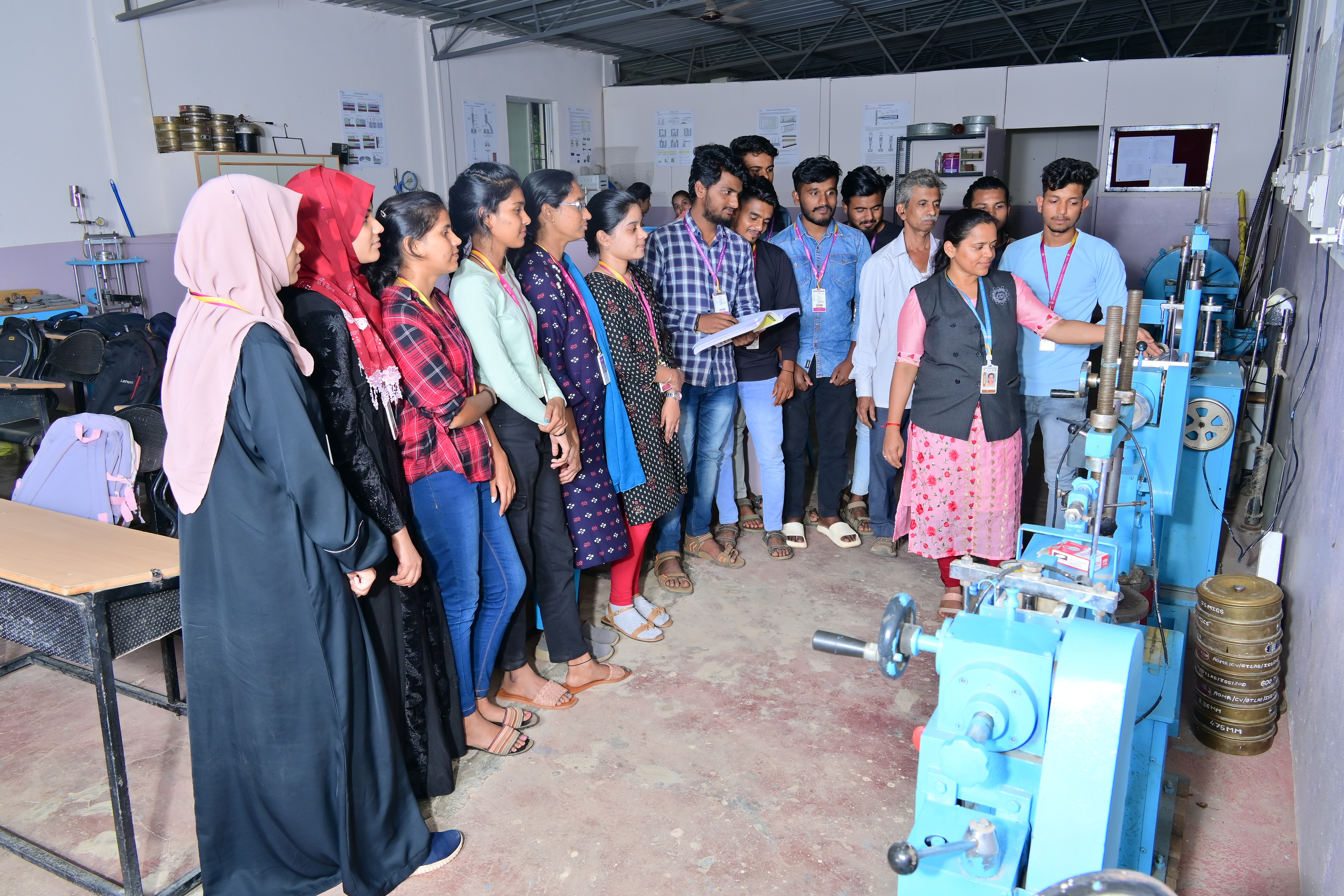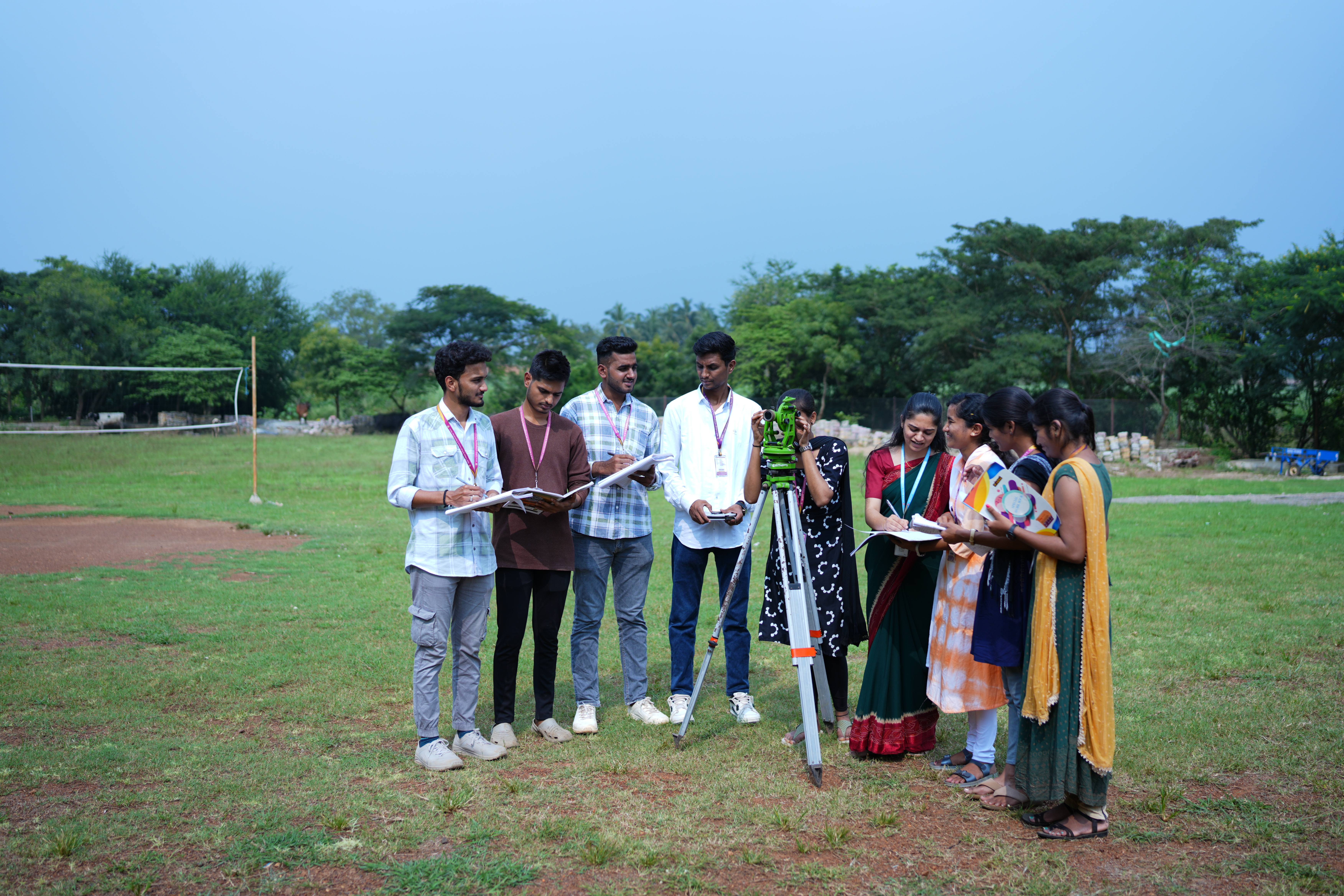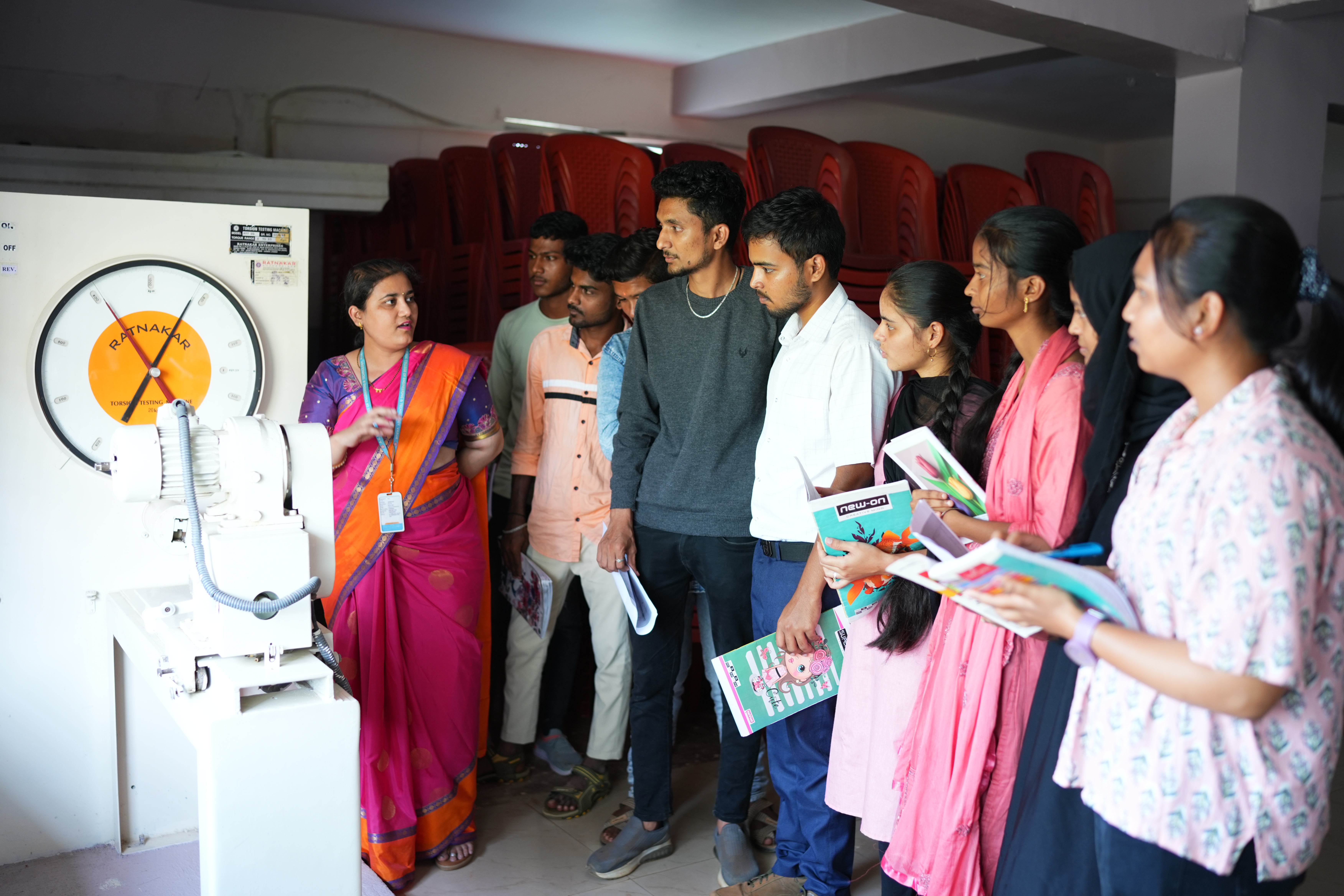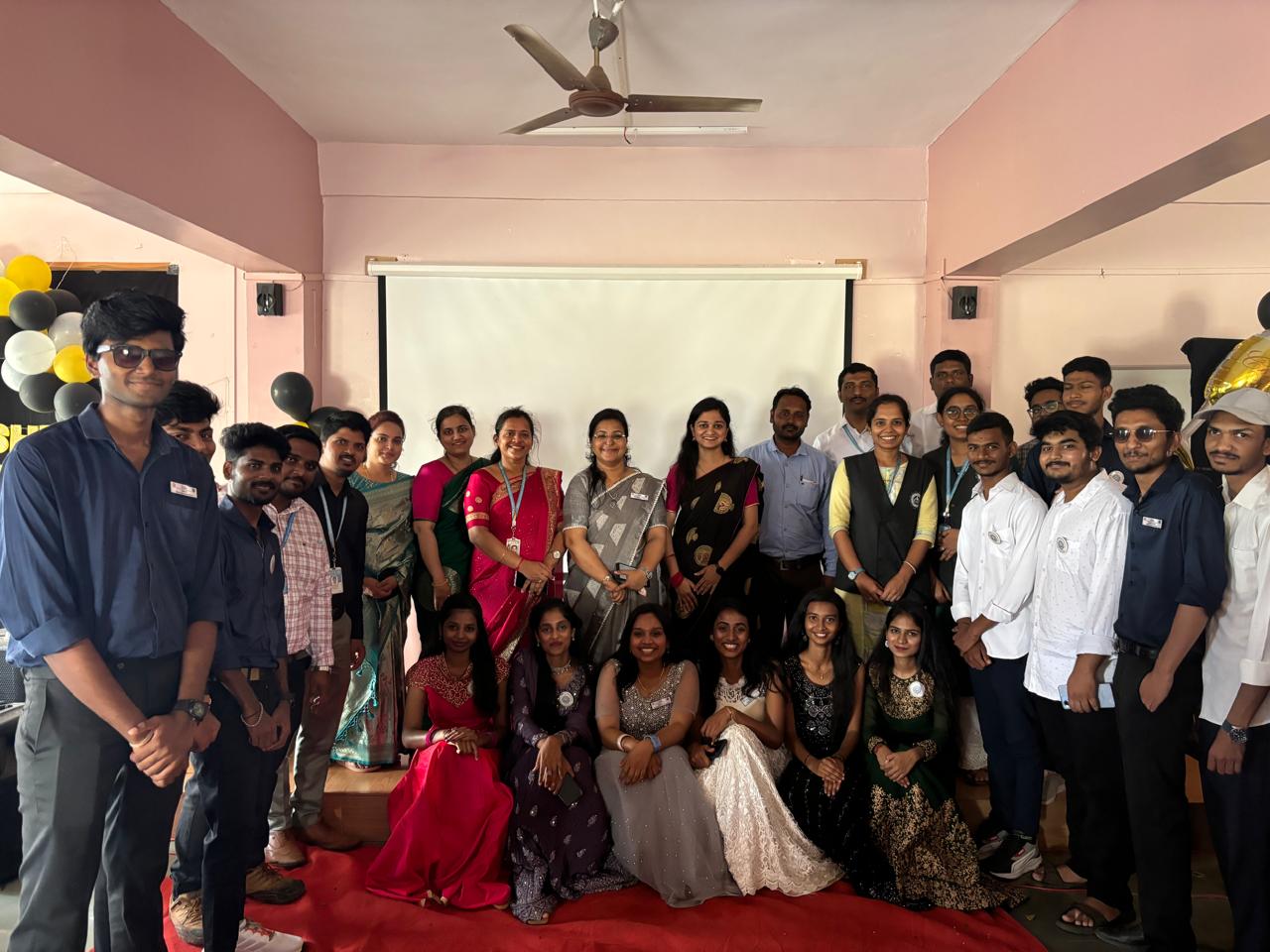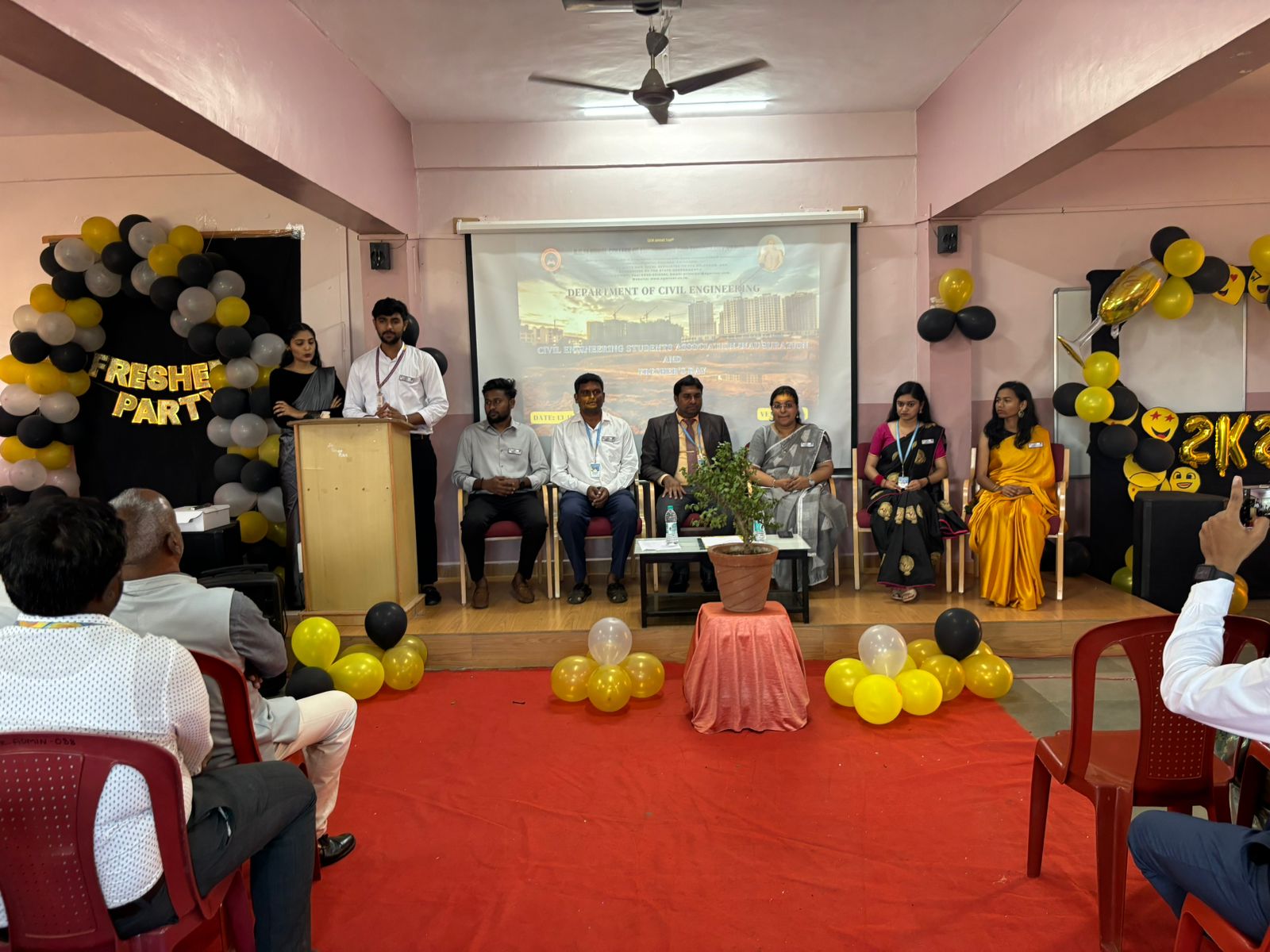- Home
-
About us
Want to change the world? At AGM we’re doing just that. When you join the AGM community, you’re part of an institution that shifts the global conversation every single day.
Read more - Academics
- Admissions
- Placement
- Facilities
- Life@AGM
- Contact us
- Navagrah Varur Hubli Karnatka Dharwad.
- Phone:+9194810 87999
- CET Code: E-199
- COMEDK Code: E-208
- Approved By AICTE
- Affiliated to VTU
Civil Engineering
About Department
The Department of Civil Engineering was established in 2010 with an intake of 60. The Department of Civil Engineering strives for increasing knowledge, enhancing critical thinking, ability to change information into knowledge and power of analysing the things technically of each and every student in the ever changing society
We also intend to impart knowledge through a close-knit family of highly competent faculty. Our laboratories have been very well established not only to cover the complete syllabus but to motivate students to learn beyond the syllabus, which definitely develops complete knowledge of the subject (both practical and theoretical) and develop the skill sets of students to become promising engineers in future.
Our Vision
"To be an eminent department in order to transmit valuable technical education, producing civil engineers who are brilliant, innovative, and professionally competent with a social conscienceresponsibility and ethical standards to serve the nation.."
Our Mission
*Encourage students to be planners designers, constructors and operators who are competent, collaborative and ethical to serve society. *To ensconce budding civil engineers to be entrepreneurs and pursue higher education in reputed institutions.
HOD Message
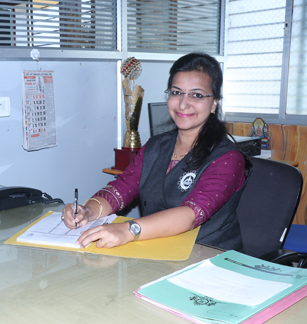
Mrs. Madhu Jalaki
Head
Department of Civil Engineering
It is a matter of great privilege and immense pleasure for me to be associated with family AGM Rural College of
Engineering & Technology. The Students of our college will learn professional and quality skills besides technical expertise.
Our holistic approach stimulates innovation among students by inspiring new ideas with creative thinking.
In this era of cut throat competition, it is of paramount importance to impart an integrated education to the future citizens of the nation for successfully facing multitasking as needed by society.
I extend my best wishes to all the students in reaching their objectives and goals that lead to true success in their career path. I feel proud when our students reach new heights by achieving excellence in academics and lead society and nation in the fore front.
Program Outcomes(POs):
PO1: Engineering knowledge: Apply the knowledge of mathematics, science, engineering fundamentals, and an engineering specialization to the solution of complex engineering problems.
PO2: Problem analysis: Identify, formulate, review research literature, and analyze complex engineering problems reaching substantiated conclusions using first principles of mathematics, natural sciences, and engineering sciences
PO3: Design/development of solutions: Design solutions for complex engineering problems and design system components or processes that meet the specified needs with appropriate consideration for the public health and safety, and the cultural, societal, and environmental considerations.
PO4: Conduct investigations of complex problems: Use research-based knowledge and research methods including design of experiments, analysis and interpretation of data, and synthesis of the information to provide valid conclusions.
PO5: Modern tool usage: Create, select, and apply appropriate techniques, resources, and modern engineering and IT tools including prediction and modeling to complex engineering activities with an understanding of the limitations
PO6: The engineer and society: Apply reasoning informed by the contextual knowledge to assess societal, health, safety, legal and cultural issues and the consequent responsibilities relevant to the professional engineering practice
PO7: Environment and sustainability: Understand the impact of the professional engineering solutions in societal and environmental contexts, and demonstrate the knowledge of, and need for sustainable development.
PO8: Ethics: Apply ethical principles and commit to professional ethics and responsibilities and norms of the engineering practice.
PO9: Individual and team work: Function effectively as an individual, and as a member or leader in diverse teams, and in multidisciplinary settings.
PO10: Communication: Communicate effectively on complex engineering activities with the engineering community and with society at large, such as, being able to comprehend and write effective reports and design documentation, make effective presentations, and give and receive clear instructions.
PO11: Project management and finance: Demonstrate knowledge and understanding of the engineering and management principles and apply these to one’s own work, as a member and leader in a team, to manage projects and in multidisciplinary environments
PO12: Life-long learning: Recognize the need for, and have the preparation and ability to engage in independent and life-long learning in the broadest context of technological change.
PSO1: Investigate, Device , Develop and Enhance the solutions in Python, Java, NET technology and Android Based Applications.
PSO2: Design and Develop Computer Based Systems with Varied Degrees of Complexity in the field of Networking, Web design, Cloud Computing Algorithms, Internet of Things and data Analytics & Machine Learning
-
2022 Scheme Co Statments
-
2021 Scheme Co Statments
-
2018 Scheme Co Statments
| Name | Qualification | Designation | Experience |
|---|---|---|---|
| Mrs. Madhu Jalaki | B.E M.Tech (Ph.D) | HOD & Associate Professor | 09 |
| Dr. Ravindra Patil | B.E M.Tech Ph.D | Associate Professor | 28 |
| Dr. Mahaboobali Nadaf | B.E M.Tech Ph.D | Associate Professor | 9 |
| Dr.Nagendra | B.E M.Tech Ph.D | Associate Professor | 9 |
| Mr. Mohankumar K | B.E M.Tech | Assistant Professor | 09 |
| Mrs. Deepali M | B.E M.Tech | Assistant Professor | 09 |
| Mrs. Sushma Diggi | B.E M.Tech | Assistant Professor | 07 |
| Ms. Vijaylaxmi S | B.E M.Tech | Assistant Professor | 05 |
| Mrs. Rashmi K | B.E M.Tech | Assistant Professor | 04 |
| Mr.Rameez K | B.E M.Tech | Assistant Professor | 06 |
| Mr. Mohammad Tayyib M | B.E M.Tech | Assistant Professor | 03 |
| Ms. Nidhi S | B.E M.Tech | Assistant Professor | 02 |
| Supporting Staff | |||
| Mr. R S Hadli | DIPLOMA | Instructor | 30 |
| Ms. Soundarya T | DIPLOMA | Instructor | 05 |
| Ms. Ramya S | DIPLOMA | Instructor | 03 |
| Ms. Chaitra T | DIPLOMA | Instructor | 03 |
| Mr. Arun m | PUC | Plumber | 08 |
| Mrs. Lakshmavva | - | Helper | 05 |
-
Placced Student Details
What we have
Scheme and Syllabus
Enquiry Form

Courses Offered
Quick Links
HELP & SUPPORT
Get In Touch
Address: NavagrahaTeerth,NH4-Raod Varur,Hubballi,Karnataka-581207
Phone: +(91)94810 87999
Email: principal@agmrcet.ac.in











